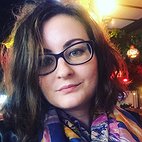The Middle East, close to the heart of the Syrian conflict, is where everything is complicated and nothing is what it seems. For generations, different countries have conflicting and ever-changing agendas for this area. Just in the northern part of Syria, there is a place called Rojava or Democratic Federation of Northern Syria and it is under heavy sanctions.
Cryptocurrency can become the path for the region to avoid those sanctions, Coindesk reports.
Over four million people live in Rojava and every neighboring state put sanctions on it.
Erselan Serdem is Rojava technological development program leader. He believes that crypto can be the alternative to Syrian lira, the national currency of Syria, which Rojava fought over for four years. He hopes to establish crypto and blockchain education as well.
Another figurehead of crypto movement is Amir Taaki, a Bitcoin developer and also a veteran of Rojavan war.
“Rojava is a revolutionary project that wants to build a new society based on anarchist principles, and that means law, defense, society, and culture," he said.
He underlines that they are following the ideology of a Kurdish leader Abdullah Ocalan. Ocalan, originally a Turkish citizen, was caught by Turkish military back in 1999 in Nairobi and he is still in the prison; he was responsible for terrorist attacks on Turkish villages and cities in the name of Kurdish nationalism.
Establishing peace in this region is a mighty goal, and adopting crypto might help in this aim.
Inspired by Ocalan, Serdem considers their vision a decentralized system of society, while the rest of the world calls it anarchy.
Taaki hopes that the new system will reduce the costs of trading since currently it is based on fiat and under the pressure of sanctions. He mentions that sending money to Istanbul will require a 10% commission, crypto might decrease it to 2%.
In order to achieve that, Taaki is promoting bitcoin adoption and crypto wallets. Since most people don’t have smartphones, they are searching for safe ways to transfer crypto assets over the radio.
A decentralized society requires different groups of people working on different problems. In Rojava they call these, cooperatives.
Crypto and smart contracts can be useful tools to internally trading, governing and living.
“The cooperatives can trade with each other based on currencies that are pegged to a basket of goods, or just free floating in the market," Taaki says.
It is clear that Rojava will be an example or case study for future crypto adoptions. It might not be the ideal way of implementing, but an attempt nevertheless.
They are trying to change a system which they believe doesn’t work, and Serdem says that it doesn’t work globally. He emphasizes that Rojava’s work is not a violent one anymore, it is about “evolution” Serdem says.
He considers that for Rojava and the world such evolution is the last chance, “to overthrow the old system of globalization, capitalist exploitation and a new form of consumer slavery”.
Be warned capitalism, Rojava is coming.
Subscribe to our Telegram channel to stay up to date on the latest crypto and blockchain news.


